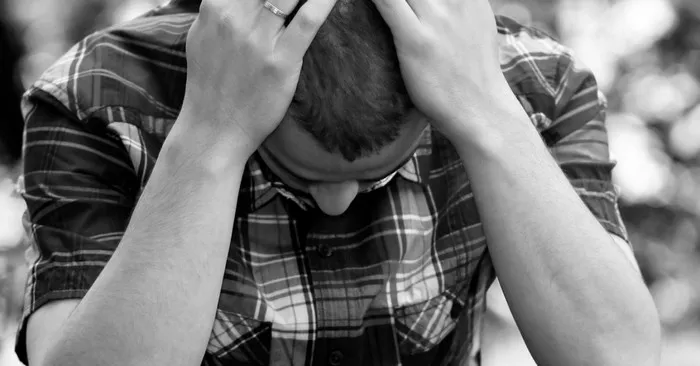Overview of Bipolar 2 and Anxiety
Bipolar 2 disorder is characterized by periods of depression and hypomania, a less severe form of mania. Anxiety commonly co-occurs with bipolar disorder, compounding the challenges faced by individuals managing these conditions. Symptoms of bipolar 2 include depressive episodes marked by sadness, fatigue, and loss of interest, while hypomanic episodes involve increased energy, impulsivity, and elevated mood. Anxiety symptoms may include excessive worry, restlessness, and panic attacks, often exacerbating mood fluctuations in bipolar disorder.
Types of Medications Used to Treat Bipolar 2 and Anxiety
1. Mood Stabilizers: Mood stabilizers are the cornerstone of bipolar disorder treatment, helping to stabilize mood swings and prevent both depressive and manic episodes. Common mood stabilizers include lithium, valproate, and lamotrigine. Lithium is particularly effective in preventing manic episodes, but it requires careful monitoring of blood levels due to potential toxicity. Valproate can also be effective but may carry a risk of weight gain and liver toxicity. Lamotrigine is often prescribed for bipolar depression and has a lower risk of causing weight gain.
2. Antipsychotics: Antipsychotic medications are frequently used to manage symptoms of bipolar disorder, particularly during acute manic episodes. They help regulate mood by targeting dopamine and serotonin receptors in the brain. Examples include olanzapine, quetiapine, and aripiprazole. Olanzapine is effective in treating manic episodes but may lead to weight gain and metabolic issues. Quetiapine is often used for both manic and depressive episodes, with sedation being a common side effect. Aripiprazole is less sedating and may be preferred for long-term maintenance treatment.
3. Antidepressants: The use of antidepressants in bipolar disorder is controversial due to the risk of inducing manic episodes, known as antidepressant-induced mania or hypomania. However, in some cases, they may be cautiously prescribed alongside mood stabilizers. Selective serotonin reuptake inhibitors (SSRIs) such as sertraline or bupropion may be considered, but close monitoring is essential to detect any signs of mood destabilization.
4. Anxiolytics: Anxiolytics, or anti-anxiety medications, can help manage anxiety symptoms in individuals with bipolar 2 disorder. Benzodiazepines like clonazepam or lorazepam are commonly prescribed for acute anxiety episodes but are typically used on a short-term basis due to the risk of tolerance and dependence. Buspirone is another option that may be used for long-term anxiety management, with a lower risk of dependency.
Factors to Consider When Choosing Medication
When selecting medications for bipolar 2 with anxiety, several factors need to be considered:
Individual Needs and Symptoms: Treatment should be tailored to the individual’s specific symptoms and needs, taking into account the severity of mood fluctuations and anxiety symptoms.
Potential Side Effects: Each medication carries its own set of potential side effects, ranging from weight gain and sedation to metabolic issues and liver toxicity. It’s crucial to weigh the benefits against the risks and monitor for adverse effects closely.
Drug Interactions: Some medications may interact with each other, affecting their efficacy or increasing the risk of side effects. It’s essential to inform healthcare providers about all medications and supplements being taken.
Pregnancy and Breastfeeding: Certain medications may pose risks to pregnant or breastfeeding individuals and their babies. Alternative treatment options may need to be explored in these situations to ensure the safety of both mother and child.
Importance of Therapy Alongside Medication
While medications play a crucial role in managing bipolar 2 and anxiety symptoms, they are most effective when combined with psychotherapy and other non-pharmacological interventions. Cognitive-behavioral therapy (CBT), dialectical behavior therapy (DBT), and interpersonal therapy (IPT) can help individuals develop coping strategies, improve problem-solving skills, and enhance social support networks. Additionally, psychoeducation can empower individuals to better understand their conditions and adhere to treatment plans.
Lifestyle Changes That Can Help
In addition to medication and therapy, certain lifestyle changes can support mental health and overall well-being:
Sleep Hygiene: Maintaining a regular sleep schedule and practicing good sleep hygiene habits can help stabilize mood and reduce anxiety.
Exercise: Regular physical activity has been shown to improve mood, reduce stress, and increase overall resilience to mental health challenges.
Stress Management Techniques: Learning relaxation techniques such as deep breathing, mindfulness meditation, and progressive muscle relaxation can help reduce anxiety and promote emotional regulation.
Conclusion
In conclusion, finding the right medication regimen for bipolar 2 with anxiety requires careful consideration of individual needs, symptoms, potential side effects, and other factors. Alongside medication, therapy, lifestyle changes, and support resources play essential roles in managing these complex conditions and promoting overall mental health and well-being.
FAQs
How do you treat bipolar 2 and anxiety?
Treatment for bipolar 2 and anxiety typically involves a combination of medication, therapy, and lifestyle changes. Mood stabilizers, antidepressants, and anti-anxiety medications may be prescribed. Therapy such as cognitive-behavioral therapy (CBT) can help manage symptoms, while lifestyle changes like regular exercise and stress management techniques are beneficial.
How do you calm down bipolar anxiety?
To calm down bipolar anxiety, it’s essential to implement coping strategies such as deep breathing exercises, progressive muscle relaxation, mindfulness meditation, and engaging in activities that promote relaxation and stress relief. It’s also crucial to maintain a consistent routine, prioritize self-care, and seek support from loved ones or mental health professionals when needed.
Can you have anxiety and bipolar at the same time?
Yes, it’s possible to have both anxiety and bipolar disorder simultaneously. This is known as comorbidity, where two or more mental health conditions occur together. Managing both conditions may require a comprehensive treatment approach tailored to address the specific symptoms and needs of each individual.
Related topics:
- Exploring the Best Over-the-Counter Treatments for Depression
- Navigating Treatment: The Best Drugs for GAD and Depression
- Exploring the Best Medications for Depression and Anxiety


